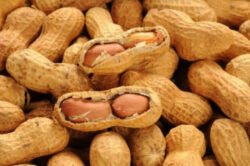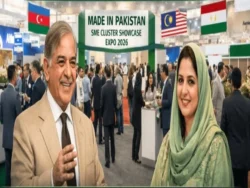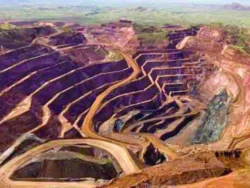Food co-operation between Pakistan and GCC countries has immense potential

22 November 2023
Published in: Arab News
As geo-economics assumes greater traction, it is pertinent to highlight the factors that contribute to higher economic growth. One of those factors is food security which contributes to good public health through access to better quality and nutritious food. A healthy population responds positively to knowledge assimilation and the learning of skills. Thus, the availability of quality food to a wide section of society enhances labour productivity, leading to faster economic growth. This is more relevant to modern times where muscle power is being replaced by brain power through state-of-the-art technical skills. Under-nourished nations are more likely to lag behind in the fast race for modernization and development.
It is pertinent to flag the difference between food deficiency and food insecurity. GCC countries import 85% of their food requirements including 93% cereals, 62% meat and 56% of fruits and vegetables. That, however, does not mean that these countries are food insecure since they have the financial wherewithal for food imports. Pakistan and Egypt, to the contrary, grow a bulk of their food requirements but are still food insecure. The reasons here are a fast growing population, high food inflation and poverty. Disrupted supply chains due to the Ukraine war have flagged the necessity of establishing sufficient buffer food stocks to tide over emergencies. The problem however, is that only some edible items could be stored over long periods.
In addition to Pakistan and Egypt, Iran too imports cereals and other food items now. Not long ago, Syria and Lebanon used to export fruits and vegetables to the GCC countries. Economic challenges in Lebanon and a decade old turmoil in Syria have impacted negatively on those supplies. Sudan and Somalia were once major exporters of livestock to the Gulf countries. Political instability has not allowed those exports to flourish. Above mentioned factors bring into focus the role that Pakistan can play in ensuring its own and regional food security.
Regional countries like Pakistan, Egypt and Sudan could supply food items at lower prices due to less transportation costs. 70% of the total meats exported by Pakistan in 2020 went to GCC countries.
Javed Hafeez
Pakistan has the Indus basin and an extensive network of canals. It also has over nine million hectares of virgin land. The problem is with the uneven flow of water in the rivers. 85% of water flows into these rivers in summer as snow melts slowly in winter. The solution lies in the construction of more water reservoirs for water storage in summer. Large quantities of water remain under-utilized in summer and fall into the Arabian Sea while winter months bring acute water shortages. The current water policy of Pakistan aims at making the availability and usage of water more sustainable.
Major food imports of GCC countries are cereals, meats of various kinds, fruits and vegetables. These items are imported from around the globe and a number of fruits and vegetables are available in grocery stores around the year. Regional countries like Pakistan, Egypt and Sudan could supply food items at lower prices due to less transportation costs. 70% of the total meats exported by Pakistan ($330 million in 2020) went to GCC countries. Similarly, the Gulf Region buys large quantities of Pakistani rice.
Sugar cane and rice are water intensive crops while wheat, barley, millet, maize and chickpeas require far less water. Pakistan could increase its food production by a wiser choice of crops and the judicious use of irrigation water. Of the cultivable land, which is still not under the plough, half is located in Balochistan which is located closer to the Gulf. Sizeable investments are required for large-scale farming, construction of small dams in Balochistan and establishing big cattle farms to meet growing food requirements of Pakistan and those of its Gulf friends. Regional countries should also exchange the latest research findings about seeds, crop patterns and propagation of quality animal pedigrees.
To attract foreign investments in agriculture and other promising sectors, the Special Investment Facilitation Council (SIFC) was established in Pakistan this year. It works with a five-year horizon and its meetings have been attended by the top civil and military leadership. The Council has already received some delegations from Gulf countries and held a road show in UAE to attract investments. The Council is focusing on agriculture and livestock corporate farming, particularly in the Cholistan area where 60,000 acres have been earmarked for the purpose. Pakistan has proposed to Saudi Arabia, UAE, Qatar and Bahrain to invest six billion dollars in corporate farming over the next three to five years.
The Council works from the Prime Minister’s office and offers a one-window operation. It is in direct contact with the four provincial chief ministers. This has been done to ensure that no foreign investor has to go from office-to-office seeking approvals. China has also evinced keen interest in the Council. Food security is essential and can be achieved through regional co-operation. Regional linkages for optimum economic growth would lead to prosperity and enhance overall security and development.
– Javed Hafeez is a former Pakistani diplomat with much experience of the Middle East. He writes weekly columns in Pakistani and Gulf newspapers and appears regularly on satellite TV channels as a defense and political analyst.





